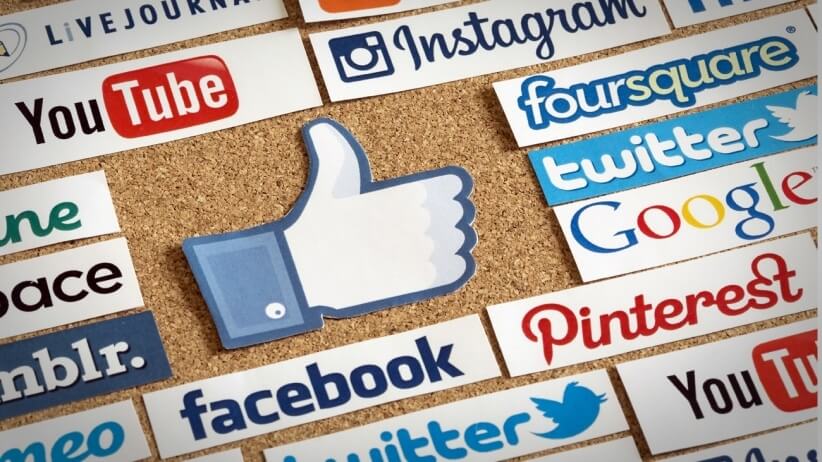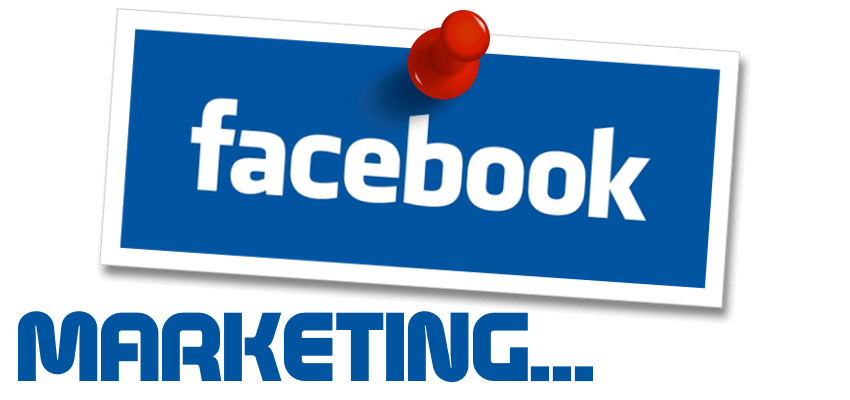Facebook marketing refers to the practice of promoting a brand, product, or service on Facebook, the world’s largest social media platform. This type of marketing can be highly effective due to Facebook’s vast user base and sophisticated targeting capabilities. In this article, we will explore how Facebook marketing works, its key components, benefits, and strategies for success.
Understanding Facebook Marketing
- What is Facebook Marketing?
Facebook marketing involves creating and actively using a Facebook page as a communications channel to maintain contact with and attract customers. It serves as a platform to create and share content, engage with followers, and advertise products or services.
- Key Components of Facebook Marketing
Facebook Page: The primary tool for marketing, representing a business or brand’s identity.
Content Creation: Sharing relevant and engaging content such as posts, images, and videos.
Advertising: Utilizing Facebook’s paid advertising options to reach a larger or more targeted audience.
Analytics: Using Facebook Insights to track engagement, reach, and the effectiveness of marketing efforts.
Benefits of Facebook Marketing
Wide Reach: With over 2 billion active users, Facebook offers access to a vast audience.
Targeted Advertising: Sophisticated targeting options based on demographics, interests, behavior, and more.
Cost-Effective: Flexible advertising budget options suitable for all sizes of businesses.
Engagement: Direct communication with customers through comments, messages, and feedback.
Brand Awareness: Increases visibility and helps in building a brand’s identity and reputation.
Analytics and Insights: Detailed metrics to analyze and optimize marketing strategies.
How to Use Facebook for Marketing
- Creating a Business Page
Setting Up: Choose the right category, fill in basic information, and add a profile and cover photo.
Optimization: Use keywords, complete all sections, and regularly update information.
- Content Strategy
Consistency: Regular posting keeps the audience engaged.
Quality Content: Share valuable, informative, and entertaining content.
Variety: Mix up the types of posts (images, videos, live videos, stories).
Engagement: Encourage interaction by asking questions and responding to comments.
- Facebook Advertising
Types of Ads: Image ads, video ads, carousel ads, slideshow ads, and more.
Targeting: Define the audience based on demographics, interests, behaviors, and location.
Budgeting: Set a daily or lifetime budget for ads.
Monitoring: Use Facebook Ads Manager to track performance and adjust strategies.
- Engaging with Your Audience
Respond to Comments: Actively engage with followers by responding to comments and messages.
Customer Service: Use Facebook as a platform for addressing customer inquiries and issues.
- Using Facebook Insights
Track Engagement: Monitor likes, shares, comments, and page views.
Understand Your Audience: Learn about your followers’ demographics and behavior.
Content Optimization: Adjust your content strategy based on insights.
Challenges and Best Practices
Staying Updated: Keep up with Facebook’s frequently changing algorithms and features.
Authenticity: Maintain a genuine and transparent approach.
Testing and Learning: Continuously test different strategies and learn from the results.
Compliance: Adhere to Facebook’s advertising policies and guidelines.
Facebook marketing is a dynamic and powerful tool for businesses to increase their online presence, engage with customers, and drive sales. By understanding its components, benefits, and strategies, businesses can effectively leverage Facebook to achieve their marketing goals. Regular analysis and adaptation are key to staying relevant and making the most out of this platform.
Whether you are a small business owner or a marketer at a large corporation, mastering Facebook marketing can lead to significant growth and success in the digital world.
Advanced Strategies in Facebook Marketing
- Leveraging Facebook Groups
Community Building: Create or join groups relevant to your industry to foster a community.
Engagement: Actively participate in discussions and provide valuable insights to establish authority.
- Facebook Live and Stories
Live Interactions: Use Facebook Live to engage with audiences in real-time, offering Q&As, behind-the-scenes looks, and live events.
Stories: Share day-to-day moments with stories to maintain a constant presence in followers’ feeds.
- Influencer Partnerships
Collaborations: Partner with influencers to tap into their follower base and gain credibility.
Co-Creation: Work together on content creation for a more authentic promotion.
- Facebook Marketplace and Shops
E-commerce Integration: Utilize Facebook Marketplace and Shops to sell products directly through the platform.
Seamless Shopping Experience: Offer a convenient shopping experience within the social media environment.
- Retargeting Campaigns
Custom Audiences: Use Facebook Pixel to track website visitors and retarget them with specific ads.
Lookalike Audiences: Reach new people who are similar to your best customers.
- Cross-Promotion with Other Platforms
Integrated Marketing: Link your Facebook marketing with other platforms like Instagram, Twitter, and LinkedIn for a cohesive strategy.
Unified Messaging: Ensure consistent messaging across platforms to strengthen brand identity.
Measuring Success in Facebook Marketing
ROI Analysis: Assess the return on investment by comparing the cost of marketing efforts against the revenue generated.
Conversion Tracking: Use conversion pixels to track the effectiveness of ads in driving desired actions.
Sentiment Analysis: Gauge brand sentiment through comments and feedback.
Competitor Benchmarking: Compare your performance against industry standards and competitors.
Future Trends in Facebook Marketing
AI and Machine Learning: Leveraging AI for personalized marketing experiences and improved ad targeting.
Augmented Reality (AR): Incorporating AR in ads for a more interactive experience.
Video Content: Increasing focus on video content, including short-form videos and live streaming.
Voice Search Optimization: Adapting to the rise of voice search and AI assistants.
Data Privacy: Navigating the changing landscape of data privacy regulations.
Facebook marketing is an ever-evolving field. Staying informed about the latest trends, technologies, and user behaviors is crucial. The success of Facebook marketing lies in understanding your audience, creating compelling content, and effectively using the platform’s robust advertising tools.
By adopting a strategic approach and continuously refining tactics based on performance data, businesses can harness the power of Facebook to reach their marketing objectives.
In essence, Facebook marketing is not just about selling a product or service; it’s about building relationships, understanding customer needs, and creating a community around your brand. When done right, it can be a game-changer for businesses, providing a powerful platform to connect with customers, build brand loyalty, and drive growth.
Top 20 best Facebook Campaings Ever Made
Creating a list of the top 20 best Facebook campaigns ever made is a fascinating challenge, as it involves considering a variety of successful strategies, innovative techniques, and impactful outcomes. These campaigns stand out due to their creativity, effectiveness in engaging the audience, and achieving their marketing goals.
While specific campaign performance data may not be publicly available for all, the impact and popularity of these campaigns have made them noteworthy in the marketing world. Here is a curated list highlighting diverse and successful Facebook campaigns:
Dove’s Real Beauty Sketches: A campaign that highlighted self-esteem and real beauty, sparking wide conversation and engagement.
Heineken’s Departure Roulette: An interactive campaign that involved airport participants agreeing to drop their plans and fly to a random destination, creating a buzz both online and offline.
Ice Bucket Challenge by ALS Association: Although not initially started by the ALS Association, this viral challenge significantly raised awareness and funds for ALS research.
Coca-Cola’s “Share a Coke” Campaign: Personalized Coke bottles encouraged sharing both in real life and across social media platforms.
Red Bull Stratos – Felix Baumgartner’s Jump: Leveraged Facebook for real-time updates and live streaming of the historic space jump.
Oreo’s Daily Twist: Celebrating its 100th birthday, Oreo posted a new “twist” on current events daily, engaging users with topical and creative imagery.
Spotify’s Year in Music: A personalized campaign that allowed users to share their unique music listening habits over the year.
GoPro: Photo of the Day: Encouraging users to share their GoPro photos, generating daily content and community engagement.
Always’ #LikeAGirl Campaign: A powerful campaign challenging gender stereotypes, sparking conversations about confidence in young girls.
Taco Bell’s Doritos Locos Tacos Launch: A clever use of Facebook’s event feature to launch a new product, creating immense anticipation.
Burger King’s Whopper Sacrifice: A unique campaign where users got a free Whopper for unfriending 10 people on Facebook.
Nike’s Make It Count: Leveraging popular athletes to inspire users to share their own fitness goals and achievements.
Airbnb’s Live There Campaign: Focused on authentic travel experiences, encouraging users to share their stories.
KLM’s Surprise Campaign: Delighted passengers with personalized gifts, making a huge impact with a relatively small gesture.
Ford’s Fiesta Movement: A user-generated content campaign that involved giving free cars to influencers in exchange for their promotional content.
Starbucks’ Unicorn Frappuccino: A limited-time, Instagram-worthy product that created a surge in social media sharing and engagement.
Zappos’ Fan of the Week: Engaged its community by featuring a customer as the “Fan of the Week,” encouraging more interaction and content sharing.
Old Spice’s “The Man Your Man Could Smell Like” Campaign: A humorous and interactive campaign that increased engagement through witty responses to user comments.
WWF’s #EndangeredEmoji Campaign: Used animal emojis to raise awareness and donations for endangered species.
Humans of New York (HONY): Not a traditional marketing campaign, but the storytelling approach of HONY on Facebook has gained a massive following and engagement, showcasing the power of human-centered storytelling.
These campaigns were successful due to their innovative use of the Facebook platform, engaging content, and ability to connect with their audiences on a deeper level. They each brought a unique approach to digital marketing, demonstrating the vast potential of social media in brand promotion and audience engagement.










